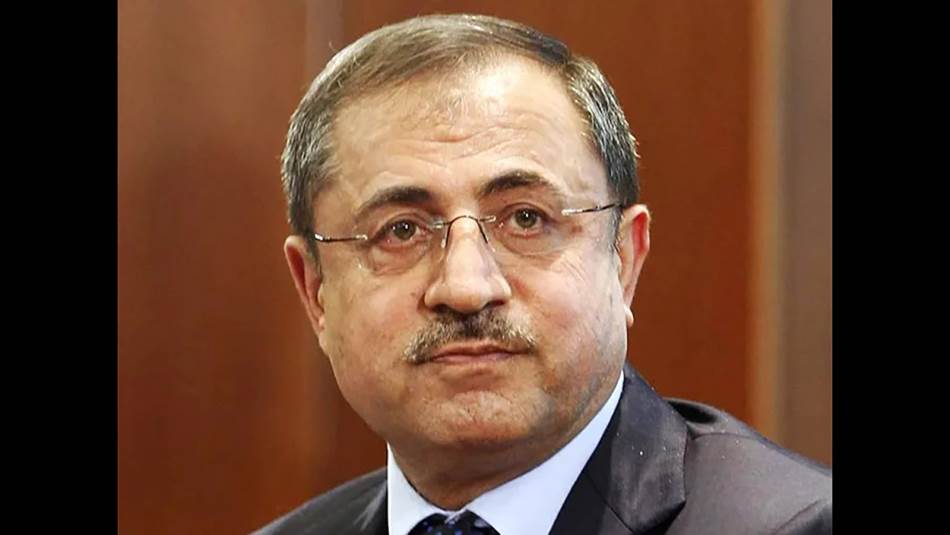In a first-of-its-kind development, former Syrian Interior Minister Major General Mohammad al-Shaar, a high-ranking official in the deposed regime, has surrendered to the new Syrian authorities.
Al-Shaar, widely known as the “Butcher of Tripoli”, is accused of crimes against humanity and war crimes in both Syria and Lebanon. He has been sanctioned by the United States, the European Union, and Arab nations. He also remains the sole survivor of the infamous Crisis Cell bombing in Damascus in 2012.
Al-Shaar’s Surrender
A video surfaced showing Mohammad al-Shaar wearing a black hat inside a vehicle alongside several individuals. One of them stated that the footage was broadcast to ensure his surrender was conducted lawfully. Shortly afterwards, al-Shaar appeared on an Arabic news channel, vehemently denying the allegations of human rights violations and atrocities attributed to him.
He claimed that the Crisis Cell, at the onset of the Syrian uprising, had “never issued orders to use violence” and was not responsible for overseeing unofficial detention centers. He further asserted that the Ministry of Interior managed only official prisons.
Born in 1950 in the town of Al-Haffa, in rural Latakia, al-Shaar joined the Military Intelligence Division of the ousted regime in 1971. Over the years, he occupied numerous high-ranking security posts, including heading the Damascus regional branch (2006) and serving as director of military security in Aleppo and Tartus. He was also stationed in Lebanon as an officer in the intelligence division.
In 2011, as the Syrian uprising erupted, Bashar al-Assad appointed al-Shaar as Minister of Interior, a position he held until 2018, when he was replaced by Mohammad Rahmoun as part of a cabinet reshuffle.
Al-Shaar was also a core member of Assad’s Crisis Cell, a high-level security committee tasked with suppressing the revolution. He was the only survivor of the Damascus National Security Office bombing on July 18, 2012, which killed Defense Minister Daoud Rajha, his deputy and Assad’s brother-in-law Assef Shawkat, National Security Office chief Hisham Bakhtiar, and General Hassan Turkmani.
Al-Shaar’s Crimes and Human Rights Violations
According to With Justice, an organization tracking war criminals, al-Shaar was responsible for widespread human rights abuses throughout his tenure. His involvement extended to:
- Crimes against protesters: As a Crisis Cell member, he played a direct role in shaping the regime’s brutal response to anti-government demonstrations in consultation with Assad.
- Internal Security Forces’ repression: He oversaw the security apparatus that aided the regime’s crackdown in rebel-held areas.
- Political Security Division violations: As the agency fell under the Ministry of Interior, al-Shaar bore responsibility for abuses committed by its members.
- Torture and killings in detention centers: Prisons under the Ministry of Interior were infamous for systematic torture and extrajudicial executions.
Due to these atrocities, al-Shaar was placed under Western sanctions as early as mid-2011, shortly after the regime’s violent suppression of the uprising.
War Crimes in Lebanon
Al-Shaar’s criminal record extends beyond Syria. During the years of Syrian military occupation in Lebanon, he was one of the key enforcers of repression, particularly during the tenure of notorious Syrian intelligence chief Ghazi Kanaan.
Under his direct command, regime forces, in collaboration with Alawite militias in Jabal Mohsen, carried out the Bab al-Tabbaneh massacre in December 1986—an event that cemented his reputation as the “Butcher of Tripoli.”
Furthermore, his history of violence did not end with Lebanon. He was a major player in one of the most horrific atrocities committed by the regime, the Saydnaya Prison Massacre of 2008, where scores of detainees were executed in cold blood.
A Calculated Move?
While al-Shaar claims he surrendered “voluntarily,” many observers speculate whether his decision was driven by fear of eventual prosecution or an attempt to negotiate leniency. As Syria undergoes dramatic political shifts, his fate remains uncertain—but his legacy of brutality will not be easily forgotten.
This article was translated and edited by The Syrian Observer. The Syrian Observer has not verified the content of this story. Responsibility for the information and views set out in this article lies entirely with the author.


